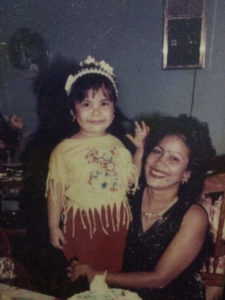Today we observe World Suicide Prevention Day under the theme, “Take a minute, change a life”.
As members of communities, it is our responsibility to look out for those who may be struggling, check in with them, and encourage them to tell their story in their own way and at their own pace. Offering a gentle word of support and listening in a non-judgemental way can make all the difference.

World Suicide Prevention Day was first recognised in 2003, as an initiative of the International Association for Suicide Prevention and endorsed by the World Health Organization. World Suicide Prevention Day takes place each year on September 10.
Speaking on suicide in Guyana, Dr Caitlin Vieira, a psychologist and addiction specialist, said: “Today is an extremely special day. Although many of you are grieving today, I encourage you to view this as a day to celebrate life, resilience and hope. Hope for those who have survived attempts and hope for their recovery. This is also a day to appreciate those survivors and all others who dedicate their lives to awareness and prevention.”
She added that the issue of suicide is not a simple one to consider because we, as a culture, have difficulty broaching it. However, Caitlin mentioned that suicide is an inescapable public health issue – one that still holds undeniable stigma within our community. She pointed out that every human being is vulnerable to mental illness and suicidal thoughts, so it is her hope to bring awareness, understanding and compassion, and to encourage persons to have the strength to engage in life-saving discussions and reach out for help.
Caitlin noted that suicidal feelings and behaviours do not just affect depressed persons, but everyone around them. She said this issue [suicide] has been discriminated against for far too long.

Gathering statistical information from the World Health Organization, Georgetown Public Hospital Corporation, and the Drug Information Network, the psychologist reported that the suicide rate in Guyana is 29 per 100,000 – well above the world average. She noted that before April 2017, Guyana had the highest suicide rate in the world at 44 per 100,000. Our nation is now ranked 4th in the world behind Sri Lanka, Lithuania and Democratic People’s Republic (North) of Korea. Still, approximately 200 people end their own lives every year in Guyana.
She went on to report that Region Two (Essequibo) and Region Six (Berbice) have the highest suicide rates in the country, adding that females attempt suicide up to four times more than males, but males are more successful in their attempt. Caitlin revealed that the majority (80%) of suicides happen within the Indo-Guyanese community. The most affected groups are between the ages of 20-49.
“While the suicide rate in Guyana has decreased, our awareness and prevention efforts should not. It is not the time to get confident or complacent, but rather a time to further our efforts as they have proven to be effective. Every child, student, parent, teacher, police officer, nurse, social worker and community member of any kind who has disseminated information throughout our country deserves congratulations and recognition. Guyana’s declining suicide rate is your victory,” she declared.
Testimonial
The psychologist and advocate said she counsels suicidal individuals every day, and while she cannot understand everything they are feeling, she has a fair idea of what’s on their mind.
“I know that most feel like a burden on their families and that everyone around them would be happier if they were gone. They develop such feelings of worthlessness and hopelessness, they come to genuinely believe they won’t be missed or that their death would have no impact. Nothing could be farther from the truth according to everyone I have ever spoken to who has lost a loved one to suicide,” Caitlin disclosed.
One of the testimonials submitted by Caitlin was written by Amy Young, who lost her aunt to suicide.
This is an extract of Amy’s story: “Suicide is often talked about like an anomaly, a rare and extraordinary tragedy, yet, it’s incredibly common. However, I never thought it would be common for me. I never thought I would know anyone who would commit suicide or even think about it, let alone my favourite person in the world.
“I was a typical 26-year-old living a completely contented life until one phone call changed it forever. The devastating call came on January 31 at 11:55am bringing the news that my aunt Beda had died. Before even having a second to properly process this news, my heart was broken and my face wet… Aunt Beda, one of my mom’s youngest sisters, had been in my life for as long as I could remember. She teased me, bought me treats, played with me, loved me and most of all made me feel so special… She tried every day to make me happy and keep me laughing…
“My aunt had trials and tribulations in her life, like every other person. I heard whispers that she wasn’t feeling well and that she was depressed, but I never saw it. Around me, she was always happy and spirited… I don’t know what she was feeling, what pain she was carrying with her, or why she thought that suicide was the only way to be rid of it… I wish I had paid more attention, maybe spent more time with her, then maybe I could’ve seen the signs and talk to her and show her that the world would not be the same without her.
“Sometimes you feel guilty for going on with life and laughing and having a good time. But not a day goes by that I don’t wish she was here with me…
“I know suicide victims have much pain and sadness, but when they get rid of their pain and sadness, their family and friends get that pain and sadness too. I have to live every day of my life without my aunt. Her grandchildren can never get to meet her. My mother probably won’t laugh as hard again without her.”



